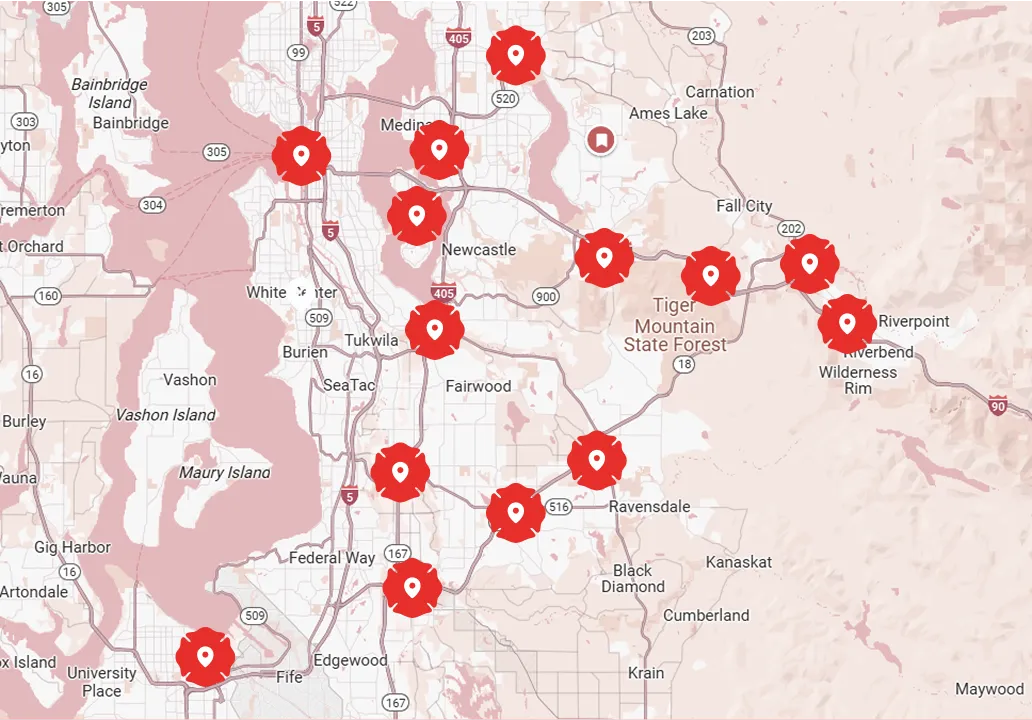Cross Country Movers in Snoqualmie, WA
.webp)
Cross-country moving from Snoqualmie, WA requires detailed planning, secure packing, and careful coordination to handle long routes and changing conditions. Professional movers manage logistics such as scheduling, route planning, and extended transit timelines while addressing local factors like weather, steep driveways, parking, and HOA requirements. Services include comprehensive packing, valuation and insurance options, and clear communication throughout each stage—from survey and booking to transit and delivery. Thorough inventories and protection measures help ensure predictable timing, reduced risk, and a well-organized relocation experience.

Moving Cross Country Movers in Snoqualmie, WA
Moving across state lines is a big decision, and for Snoqualmie, WA residents it comes with unique planning needs. This page explains cross-country moving services focused on long-haul transport planning, realistic transit time expectations, packing for extended trips, insurance and valuation choices for interstate moves, logistics coordination, delivery scheduling, and how to prepare belongings for longer transport. The goal is to give clear, practical guidance so your long-distance move from Snoqualmie is predictable and protected.
Why cross-country moving planning matters for Snoqualmie homes
Snoqualmie sits at the edge of the Cascades with frequent rain, steep driveways in some neighborhoods, and seasonal I-90 pass conditions that affect long-haul travel. Those local factors mean packing, scheduling, and vehicle access need extra attention. Long-distance moves require more lead time than local moves, careful inventory and packing for multi-day transit, and options for climate protection when moving sensitive items that could be affected by damp Pacific Northwest weather.
Common cross-country move types and issues in Snoqualmie
- Full-service long-haul moves with professional packing and door-to-door delivery
- Partial service: customer packs; movers load, transport, and unload
- Container or pod moves for flexible loading and longer-term storage
- Car shipping coordinated with household goodsCommon issues Snoqualmie residents face:
- Limited driveway or curb space for large moving trucks
- Weather-related loading delays in fall and winter
- Need to transport outdoor gear, skis, or boats safely
- HOA or city parking restrictions for loading zones
- Timing moves around school schedules or peak summer demand
Long-haul transport planning and timeline expectations
A structured plan reduces surprises. Typical steps and timelines:
- Estimate and survey: in-home or virtual survey to create a detailed inventory and a binding or non-binding estimate.
- Booking and scheduling: reserve a moving window, ideally 6 to 8 weeks before a summer move; Snoqualmie’s spring and summer moving season is busiest.
- Packing and pickup: professional crews usually require 1 to 3 days for packing depending on home size; pickup will be scheduled within a confirmed window.
- Transit: cross-country transit times vary by distance
- Pacific Northwest to West Coast: 2 to 5 days
- Pacific Northwest to Mountain states/Midwest: 4 to 7 days
- Pacific Northwest to East Coast: 7 to 14 daysFactors that affect timing: route chosen, weather (I-90 Snoqualmie Pass in winter), high-season congestion, and storage en route.
- Delivery scheduling: carriers give a delivery window and will coordinate arrival dates; allow extra flexibility for drops on longer routes.
Packing for extended trips: what Snoqualmie homes should do
Packing for multi-day transport means protecting items from motion, moisture, and temperature variation.
- Use sturdy, double-walled boxes for heavy items and smaller boxes for dense goods
- Wrap furniture with moving blankets and secure with shrink wrap to repel moisture
- Use wardrobe boxes for clothing to reduce handling and wrinkling
- For electronics and wood furniture, include desiccant packs if storing or during long transit
- Disassemble large furniture and secure hardware in labeled bags taped to the item
- Pack fragile and high-value items in separate, clearly marked boxes and consider carrying them personally
- Avoid packing hazardous materials or flammables in moving trucks; these are typically prohibited
Insurance, valuation, and liability for interstate moves
Understanding valuation options is essential for protection during interstate transport.
- Released value protection: default, low coverage calculated by weight. It is low-cost but provides minimal reimbursement.
- Full value protection: typically higher cost; carrier is responsible to repair, replace, or offer a cash settlement for lost or damaged items.
- Third-party transit insurance: an independent policy that can fill coverage gaps or cover high-value collections beyond carrier limits.Key points:
- Ask for clear explanations of what each valuation covers and how claims are settled
- Keep an inventory and take dated photographs of high-value items before pickup
- Note that some items have limited or no coverage under carrier programs unless specifically declared
Logistics coordination for Snoqualmie departures and deliveries
Good logistics planning addresses access, permits, and special equipment needs.
- Parking and access: confirm curb access for large trucks; reserve parking or loading zones especially in tight or hilly neighborhoods
- Shuttle service: if a full-size tractor-trailer cannot reach your home, expect a shuttle from the nearest legal parking point
- Elevator or stair fees: buildings with elevators or significant stairs may incur additional labor charges
- Oversized items: pianos, pool tables, or oversized outdoor gear may require special handling, rigging, or permits
- Multi-stop routes: cross-country carriers often consolidate loads; be prepared for scheduled delivery windows rather than specific times
Delivery scheduling and receiving on arrival
Delivery coordination matters particularly for long-haul moves.
- Expect a delivery window and possible multi-day arrival window for the final stop
- Schedule someone to be present for inventory checks and condition inspections
- Do a room-by-room walkthrough with the delivery crew and note any visible damage on the carrier paperwork
- For delayed delivery, confirm storage options and how your items will be protected while awaiting final drop-off
Preparing belongings and practical checklist
Simple steps reduce risk and speed both loading and unloading:
- Declutter and sell or donate items you do not need; fewer items lower cost and complexity
- Create a detailed inventory and photograph high-value possessions
- Pack an essentials bag for the first few days after arrival: toiletries, basic cookware, clothing, chargers, documents
- Empty and secure appliances and fuel tanks; defrost refrigerators at least 24 hours before pickup
- Label boxes by room and with basic content descriptions to streamline unpacking
- Ensure fragile and moisture-sensitive items are packed with extra protection and marked clearly
Final considerations and benefits of timely planning
Planning a cross-country move from Snoqualmie means factoring local driving conditions, seasonal weather, access restrictions, and special belongings. Early planning improves on-time delivery prospects, reduces risk of damage, and lets you choose the right valuation and packing options for your needs. A well-documented inventory, thoughtful packing for extended transit, and clear logistics coordination will make the move smoother and give you confidence that your belongings will arrive safely at their new destination.

